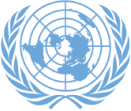Thank you Chair.
I wish to thank our friend, Ambassador Kairat Umarov and the Permanent Mission of the Republic of Kazaksthan as well as Under-Secretary-General Vladimir Voronkov and the United Nations Office of Counter-Terrorism (UNOCT) for partnering together to organize a retreat on this important subject. Thanks also to the panelists for sharing their perspectives and giving us food for thought and for further discussion.
The representative of Indonesia just mentioned how the terrorist attacks on the mosques in Christchurch, New Zealand, were unexpected. New Zealand was considered such a safe place. I had a similar reflection as I drove through the manicured lawns of the Tarrytown Conference Centre this afternoon. How far removed we are here from the world outside. But, as we know by now, nowhere is safe from terrorist attack.
The theme of our retreat is “Synergies among developing countries for achieving a world free of terrorism and Agenda 2030”. The theme recognizes the linkages between terrorism and the Sustainable Development Goals. Indeed, the most effective tool against terrorism is prevention in the first place. And the tools of prevention are less costly than the cost of post-conflict peacebuilding and the toll in human suffering. The Sustainable Development Goals of Agenda 2030 address the root causes of terrorism: poverty, injustice, inequality, lack of opportunity, lack of education, even the criminal justice system in many countries, which emphasizes retribution over rehabilitation and which is fertile breeding ground for more terrorists.
The link between combating terrorism and sustainable development is so clear that I wonder sometimes if we should not have included another goal, Goal 18, specifically for combating terrorism. I acknowledge that that might have been a heavy lift politically, but we are fortunate to have in the 17 SDGs the tools of prevention that address many of the causes of terrorism.
We in the Caribbean are no strangers to terrorism. Before 9/11, there was 10/6. On 6 October 1976, a terrorist bomb brought down a Cubana Airlines flight in the Caribbean. Among the victims were several of my school mates, all of us about to embark on our life’s journey through university. The victims included not only Guyanese, but a large number of our Cuban brothers and sisters, as well as a number of other nationalities. The international situation was different in 1976 and we in the Caribbean did not receive at that time the support and solidarity we had hoped for from outside of the region to investigate the terrorist attack and bring its perpetrators to justice.
Today, the Caribbean remains vulnerable not only to terrorist attack but to the recruitment of terrorists from among our people. Our countries are small, our borders porous and our resources wholly inadequate. We need partnerships to combat not only terrorism but related activities, such as organized crime, drug trafficking, trafficking in people, and the trade in illegal weapons.
Mr. Chairman, I look forward to the continuation of our exchanges, during which further details may emerge about the situation concerning terrorist activity in the Caribbean.


